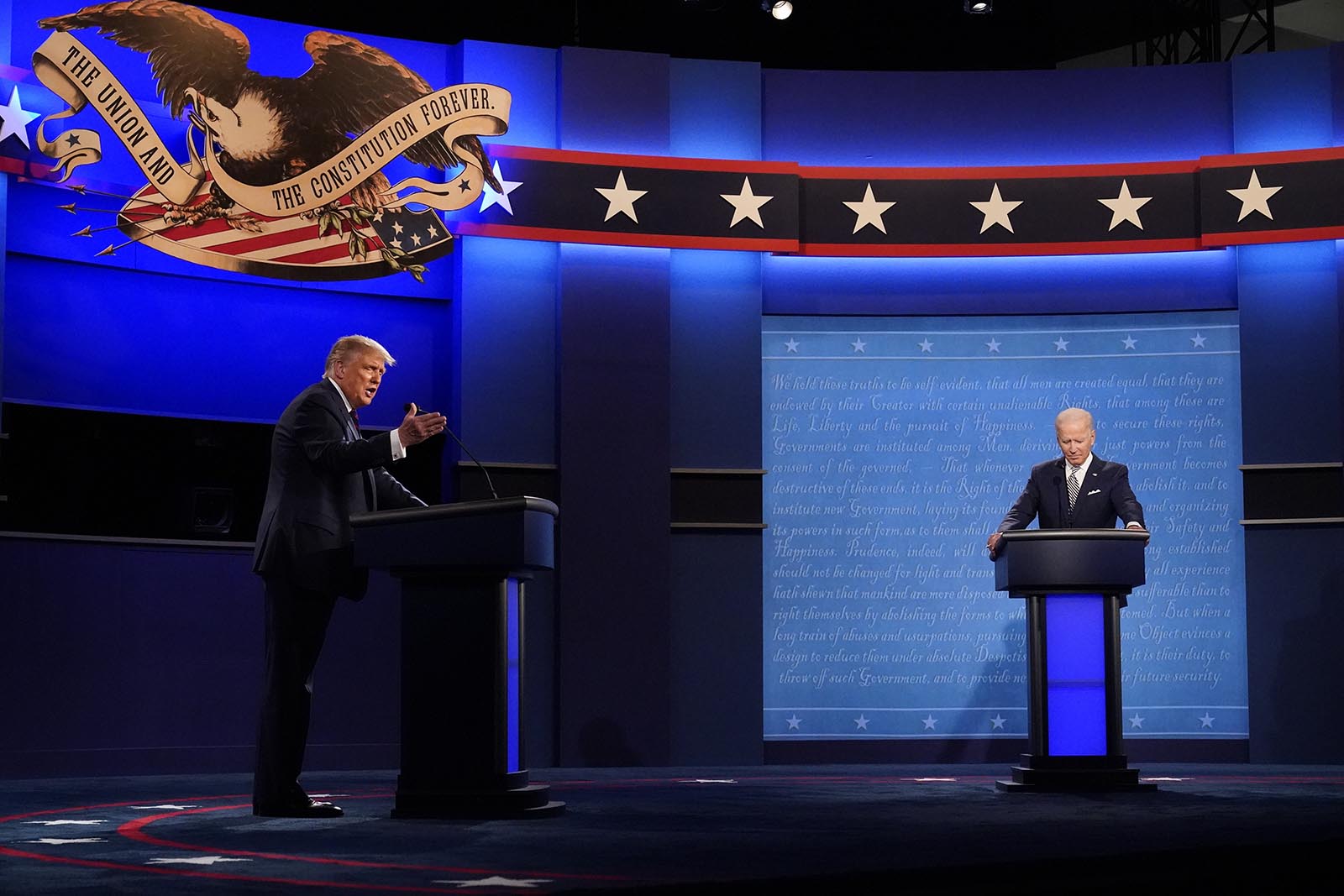The Moderator’s Impact on the Debate

Presidential debates are crucial events in the political landscape, shaping public perception and influencing voter decisions. While the candidates’ performances are paramount, the moderator plays a pivotal role in ensuring a fair and informative exchange. The moderator’s approach, background, and experience can significantly impact the debate’s flow, content, and ultimately, its effectiveness in informing the electorate.
Different Moderator Approaches, Who is moderating the next presidential debate
The approaches of different moderators in previous presidential debates have varied considerably, impacting the tone and substance of the discussions. Some moderators have adopted a more assertive approach, actively steering the conversation and challenging candidates on their statements. Others have opted for a more passive role, allowing the candidates to engage in a more free-flowing exchange.
- In the 2016 presidential debates, moderator Lester Holt was criticized for allowing Donald Trump to interrupt Hillary Clinton repeatedly, while in the 2020 debates, moderator Chris Wallace was praised for his efforts to maintain order and hold the candidates accountable for their statements.
- The contrasting styles of moderators can significantly influence the debate’s dynamics. A more assertive moderator can lead to a more focused and structured discussion, while a more passive moderator can allow for a more spontaneous and less predictable exchange.
The Influence of Moderator Background and Experience
A moderator’s background and experience can significantly influence their approach to the debate and their ability to effectively manage the candidates.
- A moderator with a strong journalistic background may bring a keen eye for detail, a commitment to fact-checking, and a deep understanding of the issues at stake.
- A moderator with a background in political science or law may possess a nuanced understanding of the complexities of policy and the nuances of political discourse.
Challenges and Responsibilities of Moderating a Presidential Debate
Moderating a high-stakes event like a presidential debate presents numerous challenges and responsibilities.
- Moderators must remain impartial and objective, ensuring that all candidates have an equal opportunity to present their views.
- They must also manage the time effectively, ensuring that all topics are covered and that the debate remains focused and engaging.
- Moderators must be prepared to handle unexpected situations, such as interruptions, personal attacks, and factual inaccuracies.
Public Perception and Expectations: Who Is Moderating The Next Presidential Debate

The public’s perception of the moderator’s role in a presidential debate is crucial. A neutral and impartial moderator is expected to ensure a fair and balanced discussion, allowing viewers to form informed opinions about the candidates. Public opinion on the importance of a neutral moderator can vary, influenced by factors such as political affiliation and media consumption.
Examples of Controversial Moderator Roles
The perception of a moderator’s neutrality can be influenced by their past actions and statements. When a moderator is perceived as biased or favoring a particular candidate, it can undermine public trust in the debate process. Here are some examples of past debates where the moderator’s role was perceived as controversial:
- 2016 Presidential Debate: During the first debate between Hillary Clinton and Donald Trump, moderator Lester Holt was criticized by some for not fact-checking Trump’s claims as rigorously as he did Clinton’s. Some viewers felt that Holt’s approach allowed Trump to get away with misleading statements, while others argued that he was simply trying to maintain neutrality.
- 2020 Presidential Debate: The second debate between Trump and Joe Biden was moderated by Steve Scully of C-SPAN. The debate was marred by constant interruptions and personal attacks from Trump, leading to criticism of Scully for failing to maintain control of the event. Some argued that Scully should have intervened more forcefully to prevent Trump’s disruptions, while others defended his approach as an attempt to avoid appearing biased.
Qualifications and Backgrounds of Potential Moderators
The selection of a moderator for a presidential debate is a complex process, often involving considerations of experience, impartiality, and public perception. Here is a table comparing the qualifications and backgrounds of potential moderators for the next debate:
| Moderator | Background | Experience | Potential Concerns |
|---|---|---|---|
| [Moderator 1] | [Background information] | [Relevant experience] | [Potential concerns regarding neutrality] |
| [Moderator 2] | [Background information] | [Relevant experience] | [Potential concerns regarding neutrality] |
| [Moderator 3] | [Background information] | [Relevant experience] | [Potential concerns regarding neutrality] |
Who is moderating the next presidential debate – Who’s moderating the next presidential debate? Honestly, I’m more concerned about who’s bringing the McNuggets. I mean, we’ve all got our favorite McDonald’s Collectors Meal, like the one with the sweet ‘n sour sauce , but I’m sure the debate moderators will be more focused on grilling the candidates than grilling some chicken.
The next presidential debate is shaping up to be a real nail-biter, and we’re all wondering who’s going to be the referee in this political showdown. You can find out who’s moderating the next presidential debate right here , but let’s just hope they’re ready for a wild ride.
After all, it’s not easy keeping two candidates from turning the debate into a full-blown food fight!
